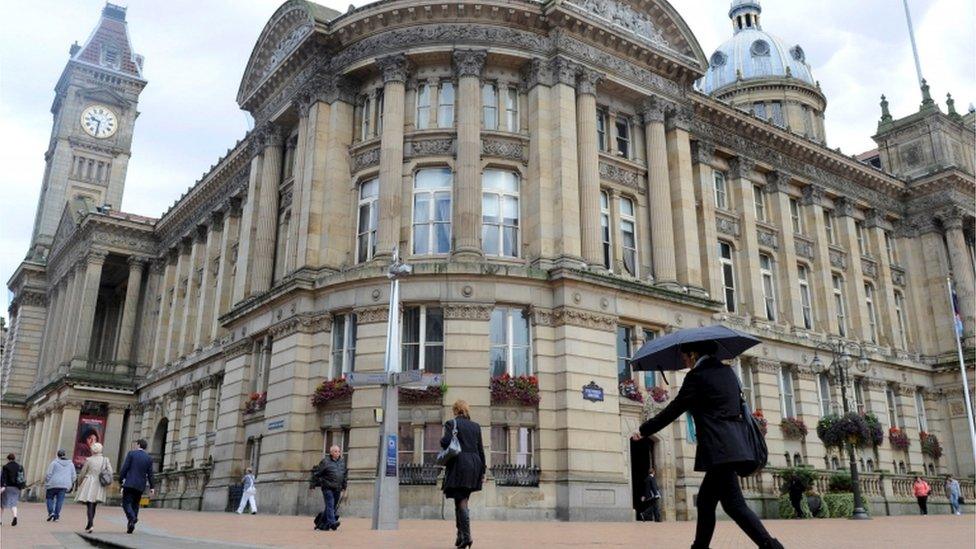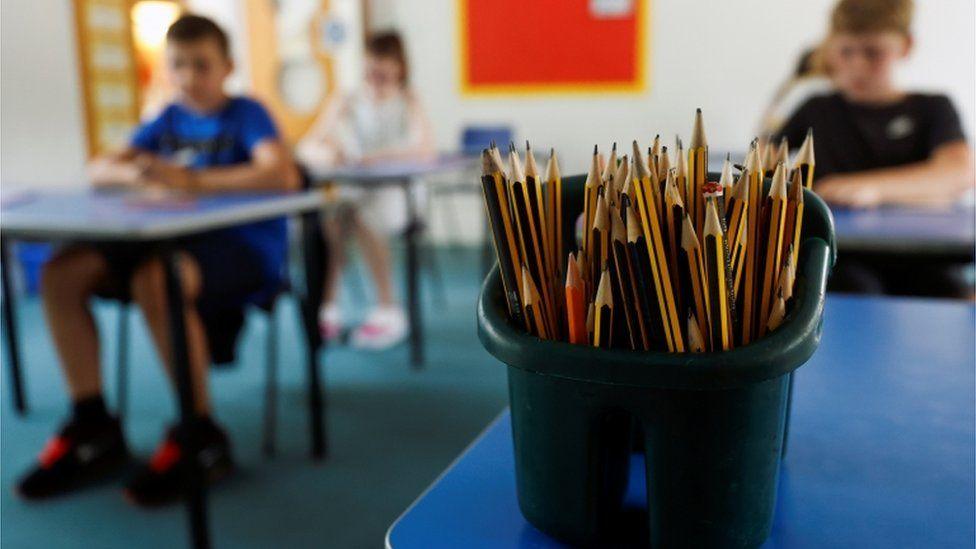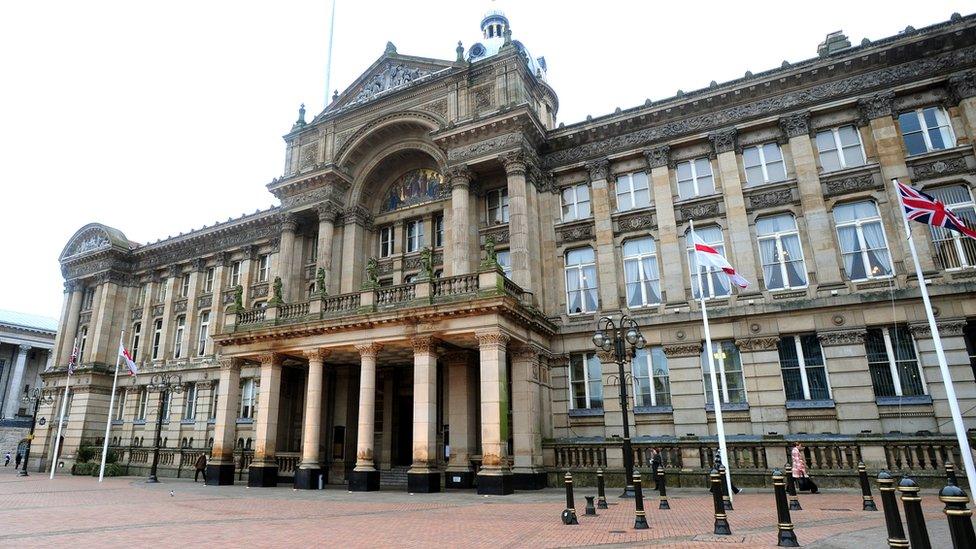Government to oversee Birmingham's SEND services
- Published

Birmingham's SEND services have been criticised for pupils' "weak" academic progress
The government has stepped in to oversee a council's special educational needs service.
A commissioner has been appointed to oversee Birmingham City Council's SEND services which needs to raise its standards, the Department for Education said.
Criticisms have included pupils making "weak" academic progress and being excluded more frequently than others.
The council said it accepts there are "fundamental weaknesses in the system".
Earlier this year, Ofsted and the Care Quality Commission said Birmingham had not made sufficient progress in addressing 12 out of 13 "significant weaknesses" over its special educational needs provision.
The council has also previously come under fire for its home-to-school transport for special needs pupils and this week, a council meeting heard three vulnerable children were taken to the wrong schools at the start of term.

Councillor Sharon Thompson said the council was aware of "fundamental" weaknesses in the system
A DfE spokesperson said every child and young person with special educational needs or disabilities should have access to high-quality services.
"Where a council does not meet their requirements to provide appropriate support for these children, we will not hesitate to take action that prioritises their needs and brings about rapid improvement."
Commissioner John Coughlan will oversee the steps which need to be made which includes the council submitting an accelerated progress plan outlining actions which need to be taken.
Councillor Sharon Thompson, cabinet member for vulnerable children and families. said she welcomed the appointment.
"We have committed to being transparent about how the service is doing, so updating parents and carers not only about good progress but also where we feel progress has not been good enough, and more importantly how we intend to accelerate progress," she said.
"Both the council and our partners know that there are fundamental weaknesses in the system which is why we are working with families, schools and all partners to ensure rapid and sustainable improvements."

Follow BBC West Midlands on Facebook, external, Twitter, external and Instagram, external. Send your story ideas to: newsonline.westmidlands@bbc.co.uk, external
Related topics
- Published13 October 2021

- Published14 July 2021

- Published25 June 2021

- Published16 September 2020

- Published25 November 2020
